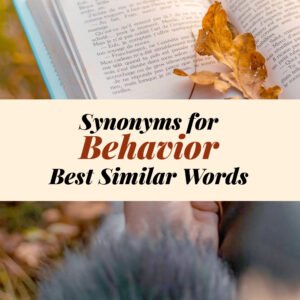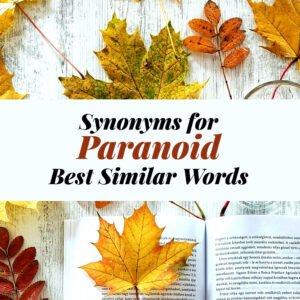When we talk about “explore,” we often mean to look at, discover, or learn about something new. There are many words we can use instead of explore. Words like investigate, examine, discover, and survey can all fit depending on the situation. In this article, we will share 17 different ways to say explore, along with examples, so you can understand and use them in everyday life.
| Synonym | Meaning | Example |
|---|---|---|
| Investigate | To study or examine carefully | The police will investigate the case. |
| Examine | To look at something carefully | The doctor will examine your hand. |
| Discover | To find something that was unknown | She wants to discover new places. |
| Survey | To look at or study something carefully | They will survey the land before building. |
| Inspect | To check something closely | The teacher will inspect the students’ work. |
| Research | To study something in detail | He wants to research new technology. |
| Probe | To try to find information about something | The journalist will probe the story. |
| Study | To look at or learn about something | She will study the behavior of birds. |
| Scout | To look for information or opportunities | They will scout new locations for the shop. |
| Reconnoiter | To explore an area for information | The army will reconnoiter the battlefield. |
| Travel | To go to different places | We love to travel to new countries. |
| Navigate | To find your way through an area | He will navigate through the forest. |
| Venture | To go somewhere new and possibly risky | They will venture into the mountains. |
| Tour | To visit different places | She will tour the museum tomorrow. |
| Roam | To move around freely in an area | The children love to roam in the park. |
| Observe | To watch carefully | The scientist will observe the animals. |
| Inspect | To look at something closely | The mechanic will inspect the car engine. |
17 Different Ways to Say EXPLORE: Another Word for EXPLORE
Investigate
Investigate means to look closely at something to understand it better. It is often used when you need to find facts or solve a problem. When you investigate, you ask questions and try to learn everything about the subject. This word is common in police work, science, and studies. You can also investigate your surroundings or a situation to make better decisions. It helps you understand the details that are not easy to see at first. Investigating something carefully can lead to important discoveries and can help you avoid mistakes.
- The students will investigate the old library books.
- She will investigate the source of the water leak.
- They need to investigate why the machine stopped working.
Examine
Examine means to look at something carefully and notice all the details. You can examine objects, documents, or even ideas. This word is useful when you want to understand something completely. Examining allows you to see things that are hidden or not clear at first. Doctors examine patients to check health. Teachers examine students’ work to understand how well they are learning. By examining carefully, you can find small mistakes, interesting points, or new information.
- The doctor will examine the patient’s leg.
- She examined the painting for hidden details.
- He will examine the car before buying it.
Discover
Discover means to find something new that you did not know before. It can be a place, a fact, or an idea. When you discover, you usually feel excitement because it is something unknown. Discovering can happen when you travel, read, study, or try new things. It helps you learn and grow. People often discover new talents, new foods, or new places. It can also mean realizing something about yourself or others that was hidden.
- She discovered a new route to school.
- They discovered old coins in the garden.
- He wants to discover new hobbies this year.
Survey
Survey means to look at or study something carefully to understand it. People survey land, buildings, or even opinions. It is a way to get an overview before making decisions. Surveying helps you see the full picture and make better plans. It is useful for farmers, architects, and scientists. Surveying can also mean asking questions to learn what people think. By surveying, you can find patterns, needs, or changes that are important.
- The engineer surveyed the construction site.
- They surveyed the area for a new park.
- She surveyed the people about their favorite books.
Inspect
Inspect means to check something carefully for problems or details. People inspect buildings, machines, or food to ensure everything is okay. Inspection helps prevent mistakes and improves safety. When you inspect, you look slowly and carefully, often using tools or tests. Inspecting is common in workplaces, schools, and homes. It is important because small problems can be found before they become big issues.
- The chef inspected the kitchen for cleanliness.
- The teacher inspected the homework papers.
- He inspected the bike before riding it.
Research
Research means to study something deeply and find information about it. It can be for school, work, or personal knowledge. Research often includes reading, testing, asking questions, and writing notes. By researching, you understand the topic much better. It can be slow, but it gives accurate results. Research is important in science, medicine, and technology. It helps people make discoveries and solve problems.
- She will research different plants for her garden.
- He researched new software before installing it.
- They researched the history of their town.
Probe
Probe means to try to find information about something carefully. It is often used when the subject is hidden or unknown. People probe to get facts, answers, or explanations. Journalists, scientists, and police often probe to get the truth. Probing involves asking questions, testing ideas, or investigating carefully. It is an active way to understand or discover something. Probing can sometimes feel difficult, but it often gives important results.
- The reporter probed into the local election.
- He probed the soil for signs of water.
- Scientists probed the cave for fossils.
Study
Study means to look at or learn about something carefully. People study books, plants, animals, or even people. Studying helps you understand details and remember important information. It can take time, but it makes your knowledge stronger. Students study for exams, scientists study nature, and travelers study maps. Studying also allows you to compare things and see patterns. The more you study, the more you know.
- She studied the birds in the park.
- He studied old maps for treasure.
- They studied the culture of a new country.
Scout
Scout means to look for information or opportunities. It is often used in sports, business, and travel. Scouting helps you find the best places, people, or ideas. People scout new locations, talent, or possibilities. It often involves moving around, observing carefully, and making notes. Scouting is useful when you need to make decisions or plan something. It allows you to be prepared and know what to expect.
- They scouted a new place for their shop.
- The team scouted young players for the match.
- He scouted the area before setting up camp.
Reconnoiter
Reconnoiter means to explore an area to get information. It is often used by the military, scientists, or travelers. Reconnoitering helps you understand the situation before acting. It involves moving, observing, and recording what you see. It is different from casual travel because the goal is to gather information. Reconnoitering is careful and focused. It helps people avoid danger and make smart decisions.
- The soldiers reconnoitered the forest.
- She reconnoitered the path for the hike.
- They reconnoitered the city before starting the project.
Travel
Travel means to go to different places. It is one of the most common ways to explore the world. Traveling allows you to see new places, meet new people, and learn new things. It can be short or long, near or far. Traveling can be planned or spontaneous. By traveling, you experience life differently and discover new ideas. People travel for work, study, or fun. Traveling also helps you understand other cultures and ways of life.
- They love to travel to mountains.
- She travels to different countries every year.
- He travels by train to visit friends.
Navigate
Navigate means to find your way through an area. It can be land, water, or even virtual spaces. Navigating requires attention and sometimes tools like maps or GPS. People navigate cities, forests, rivers, or websites. Good navigation helps you reach your goal safely and quickly. It can also mean making decisions or planning steps carefully. Navigation is a skill that improves with practice.
- He navigated through the forest successfully.
- She navigated the city streets without a map.
- They navigated the website to find information.
Venture
Venture means to go somewhere new and sometimes risky. It is often used when the outcome is not certain. People venture to discover, learn, or try something exciting. Venturing involves courage and curiosity. It can be physical, like exploring a mountain, or mental, like trying a new idea. Venturing helps people grow, face challenges, and discover new opportunities. It is an adventurous way to explore.
- They ventured into the deep forest.
- She ventured to start her own business.
- He ventured into unknown waters.
Tour
Tour means to visit different places, often for learning or enjoyment. It is organized or planned and allows you to see many things. People tour museums, cities, or factories. Touring helps you understand a place better and notice details you might miss otherwise. Tours can be short or long and are often guided. People tour for fun, study, or work. It is a structured way to explore and experience new places.
- She toured the museum with her class.
- They toured the city by bus.
- He toured the factory to learn how it works.
Roam
Roam means to move around freely without a fixed direction. It is more relaxed and spontaneous than touring. Roaming allows you to discover new places by chance. People roam in parks, forests, and cities. Roaming helps you notice things you would not see if you follow a strict plan. It is fun and sometimes surprising because you may find something unexpected. Roaming gives freedom and adventure while exploring.
- The children roamed the park all afternoon.
- He roamed the streets of the old town.
- They roamed the mountains to find a hidden lake.
Observe
Observe means to watch something carefully to learn or understand it. Observation can be quiet and patient. People observe nature, people, or events to gain information. Observing helps you notice details and patterns that are not obvious at first. Scientists, teachers, and travelers observe to learn. Observing also teaches patience and attention. By observing carefully, you can make better decisions and understand more deeply.
- She observed the birds at the lake.
- He observed the behavior of children in class.
- They observed the stars at night.

Final Thoughts
Exploring is about discovering, learning, and understanding new things. Using different words can make your writing and speaking more interesting and precise. Try these 17 alternatives to explore in your daily life to express curiosity in many ways.









